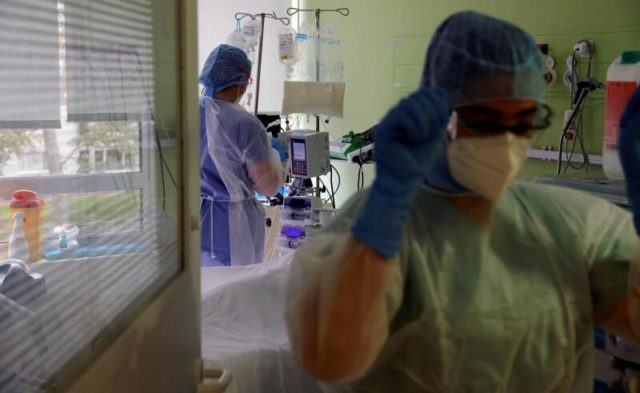The outgoing president of the Health Professions Council of South Africa (HPCSA) has stressed that inequalities still persist in heath care.
DR KGOSI Letlape has previously been criticised for saying that health care was better during apartheid. The outgoing president of the Health Professions Council of South Africa (HPCSA) added more fuel to the fire on Monday.
In an interview with 702 ahead of him leaving the HPCSA after 10 years (five years as president), he stressed that the inequalities persist. “All of us say this is post-94, this is a new dispensation, apartheid is dead. But in health care, apartheid is alive and well,’’ he said.
At the same time, he praised a public health care system that provided the first heart transplant in the world under the apartheid regime, saying: “The public health care sector under apartheid (was) even better than what we have inside the private sector today.
“Sometimes people overlook the fact that the private sector is too expensive and is not necessarily efficient, and it is not affordable for many people.’’
He also said he didn’t understand why people sought to compare the private health care sector with the public system, considering they “have almost eightfold the resources per capita’’.
“Why would you want to compare yourself with something that is funded that badly?’’ he asked.
“Look at what the public sector can achieve with the resources that they have. It’s remarkable, it’s a miracle that they continue to provide the services and it is a testament to the dedication of the health care professionals in that sector.
“We must not fall into the slumberland of thinking that our private sector is working well. We are talking about comparisons. And when we come to what I talked about funding, it is an unfair comparison,’’ he said
He highlighted that many cases involving re-surgery and complaints emanated from the private sector.
Letlape, who is not shy to speak his mind, once accused former president Thabo Mbeki and the late Manto Tshabalala-Msimang of genocide for failing to act on Aids and said medical aids were a crime against humanity that should be done away with.
On Monday, Letlape, the first black person to qualify as an ophthalmologist in South Africa, added that the private health care sector was too expensive and is “destroying the livelihood of practitioners’’.
“It is destroying professional autonomy and has become corporatised. You have institutions that decide which doctor will work and which doctor won’t work.
“They have preferred provider mechanisms and they discriminate against practitioners.’’
Letlape said that an under-resourced public health sector was a major problem for South Africa.
“When I started training, new technologies appeared in the public sector not in the private. Those who were in private would come back into the public sector for training. But now those new technologies are not available (now in the public sector); we have an under-resourced public sector.’’
Asked about his biggest achievements during his tenure, he said one of them was “to keep the doors open and the council functional”, and moving it on to electronic systems and “no longer pushing paper’’.
He admitted that the issue over the handling of complaints remained a challenge, with cases sometimes taking years to resolve.
“We need to restructure the legal framework that governs what we do. More importantly, this needs to be done as an independent properly resourced function,’’ Letlape said.
Regarding the contentious issue of the registration of foreign doctors, he laid the blame for the lengthy process largely at their door, saying foreign doctors were failing to timeously provide the necessary documentation required to be vetted properly.








